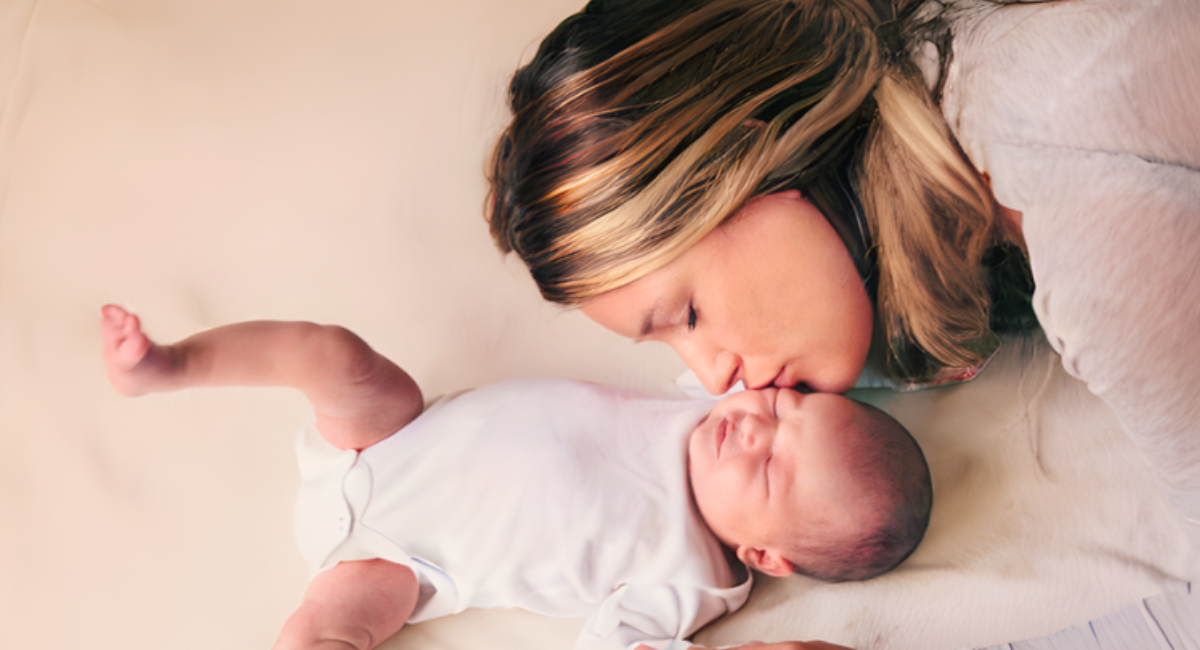
To make sure your baby’s first week is safe and healthy, it is important that:
- Your baby is checked for jaundice in the hospital
- If you are breastfeeding, you get the help you need to make sure it is going well.
- Your baby is seen by a doctor or nurse at 3 to 5 days of age.
What is jaundice?
Jaundice is the yellow color seen in the skin of many newborns. It happens when a chemical called bilirubin builds up in the baby’s blood. Jaundice can occur in babies of any race or color.
Why is jaundice common in newborns?
Everyone’s blood contains bilirubin, which is removed by the liver. Before birth, the mother’s liver does this for the baby. Most babies develop jaundice in the first few days after birth because it takes a few days for the baby’s liver to get better at removing the bilirubin.
How can I tell if my baby is jaundiced?
The skin of a baby with jaundice usually appears yellow. The best way to see jaundice is in good light, such as daylight or under fluorescent lights. Jaundice usually appears first in the face and then moves to the chest, abdomen, arms, and legs as the bilirubin level increases. The whites of the eyes may also be yellow. Jaundice may be harder to see in babies with darker skin color.
Can jaundice hurt my baby?
Most infants have mild jaundice that is harmless, but in unusual situations the bilirubin level can get very high and might cause brain damage. This is extremely uncommon, but all newborns should be checked carefully for jaundice and treated to prevent a high bilirubin level.
How should my baby be checked for jaundice?
If your baby looks jaundiced in the first few days after birth, your baby’s doctor or nurse may use a skin test or blood test to check your baby’s bilirubin level. A bilirubin level is always needed if jaundice develops before the baby is 24 hours old. Whether a test is needed after that depends on the baby’s age, the amount of jaundice, and whether the baby has other factors that make jaundice more likely or harder to see.
Does breast feeding affect jaundice?
Jaundice is more common in babies who are breastfed than babies who are formula-fed, but this occurs mainly in infants who are not nursing well. If you are breastfeeding, you should nurse your baby at least 8 to 12 times a day for the first few days. This will help you produce enough milk and will help to keep the baby’s bilirubin level down. If you are having trouble breastfeeding, ask your baby’s doctor or nurse or a lactation specialist for help. Breast milk is the ideal food for your baby.
When should my newborn get checked after leaving the hospital?
It is important for your baby to be seen by a nurse or doctor when the baby is between 3 and 5 days old, because this is usually when a baby’s bilirubin level is highest. The timing of this visit may vary depending on factors such as your baby’s age when released from the hospital. All parents will be offered an appointment in the Mom and Baby Clinic for 1-3 days after discharge which includes an assessment for jaundice.
Which babies require more attention for jaundice?
Some babies have a greater risk for high levels of bilirubin and may need to be seen sooner after discharge from the hospital. Ask your doctor about an early follow-up visit if your baby has any of the following:
- A high bilirubin level before leaving the hospital
- Early birth (more than 2 weeks before the due date)
- Jaundice in the first 24 hours after birth
- Breastfeeding that is not going well
- A lot of bruising or bleeding under the scalp related to labor and delivery
- A parent or sibling who had high bilirubin and received light therapy
When should I call my baby’s doctor?
- Your baby’s skin turns more yellow
- Your baby’s abdomen, arms, or legs are yellow
- The whites of your baby’s eyes are yellow
- Your baby is jaundiced and is hard to wake, fussy, or not nursing or taking formula well
- You notice a decrease in wet diapers or bowel movements
How is harmful jaundice prevented?
Most jaundice requires no treatment. When treatment is necessary, placing your baby under special lights while he or she is undressed will lower the bilirubin level. Jaundice is treated at levels that are much lower than those at which brain damage is a concern. Treatment can prevent the harmful effects of jaundice. Putting your baby in sunlight is not recommended as a safe way of treating jaundice. Exposing your baby to sunlight might help lower the bilirubin level, but this will only work if the baby is completely undressed. This cannot be done safely inside your home because your baby will get cold, and newborns should never be put in direct sunlight outside because they may get sunburned.
Home care tips for managing newborn jaundice
Many parents are concerned about how to help with jaundice at home. If your newborn has mild jaundice, there are several steps you can take at home to help manage the condition. The key steps involve ensuring your newborn gets enough fluids and, where safe, some exposure to indirect sunlight. Ensure your baby gets plenty of sunlight exposure by placing them near a window with indirect sunlight for short periods. Frequent feedings are crucial; breastfeed your baby 8 to 12 times a day to help them pass bilirubin through their stools. If you are formula feeding, continue regular feedings as directed by your pediatrician. Always consult your pediatrician before trying any home remedies for jaundice to ensure they are safe and appropriate for your baby’s condition.
When does jaundice go away?
In breastfed infants, jaundice often lasts for more than two weeks. In formula-fed infants, most jaundice goes away within 2 weeks. If your baby is jaundiced for more than 3 weeks, see your baby’s doctor. Regardless, your baby should see his/her doctor for a routine checkup at two weeks of age.
Discover More Must-Read Pediatric Tips and Advice
At Monadnock Community Hospital, we are committed to supporting you and your family with reliable information and expert advice. Be sure to check out our other pediatric blog posts for more tips on keeping your child healthy and happy. From newborn care to managing common childhood illnesses, our blog offers a wealth of knowledge to help you navigate the joys and challenges of parenthood.
Why Choose Monadnock Community Hospital’s Pediatrics Department?
Your child’s health is our top priority at Monadnock Regional Pediatrics. From birth through adolescence, our expert team of board-certified pediatricians and nurses provides compassionate, personalized care. We partner with families to create tailored health plans that foster a healthy, happy future. Serving the community since 1923, we’re committed to delivering high-quality, accessible care in a warm and nurturing environment. Trust us to support your child’s well-being every step of the way.

 )
[_extra_sidebar_content_0_content] => Array
(
[0] => field_5b1ac5808389e
)
[_yoast_indexnow_last_ping] => Array
(
[0] => 1755707685
)
[page_sections_0_hero_slider] => Array
(
[0] => 0
)
[_page_sections_0_hero_slider] => Array
(
[0] => field_5af4ae4adb200
)
[page_sections_0_image] => Array
(
[0] => 38173
)
[_page_sections_0_image] => Array
(
[0] => field_5af4b0553202b
)
[page_sections_0_title] => Array
(
[0] =>
)
[_page_sections_0_title] => Array
(
[0] => field_5af99e4fd1223
)
[page_sections_0_text] => Array
(
[0] =>
)
[_page_sections_0_text] => Array
(
[0] => field_5bfc041f4dfcd
)
[page_sections_0_actions] => Array
(
[0] =>
)
[_page_sections_0_actions] => Array
(
[0] => field_5af4b0783202c
)
[page_sections_1_section_title] => Array
(
[0] =>
)
[_page_sections_1_section_title] => Array
(
[0] => field_5ada5134d3021
)
[page_sections_1_wysiwyg] => Array
(
[0] =>
)
[_extra_sidebar_content_0_content] => Array
(
[0] => field_5b1ac5808389e
)
[_yoast_indexnow_last_ping] => Array
(
[0] => 1755707685
)
[page_sections_0_hero_slider] => Array
(
[0] => 0
)
[_page_sections_0_hero_slider] => Array
(
[0] => field_5af4ae4adb200
)
[page_sections_0_image] => Array
(
[0] => 38173
)
[_page_sections_0_image] => Array
(
[0] => field_5af4b0553202b
)
[page_sections_0_title] => Array
(
[0] =>
)
[_page_sections_0_title] => Array
(
[0] => field_5af99e4fd1223
)
[page_sections_0_text] => Array
(
[0] =>
)
[_page_sections_0_text] => Array
(
[0] => field_5bfc041f4dfcd
)
[page_sections_0_actions] => Array
(
[0] =>
)
[_page_sections_0_actions] => Array
(
[0] => field_5af4b0783202c
)
[page_sections_1_section_title] => Array
(
[0] =>
)
[_page_sections_1_section_title] => Array
(
[0] => field_5ada5134d3021
)
[page_sections_1_wysiwyg] => Array
(
[0] =>